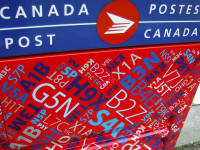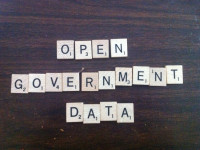Geocoder, the Ottawa-based company that managed to develop a database of postal codes using crowdsourcing techniques, has settled a controversial lawsuit brought by Canada Post. Canada Post sued in 2012 claiming intellectual property rights in postal codes. Geocoder did not copy the postal codes, however. Instead, it used crowdsourcing to develop a database containing over one million Canadian postal codes after asking people to submit their postal codes with their address. The database is freely available under a Creative Commons licence and is enormously valuable for organizations that need access to the data but are unable to pay the steep fees levied by Canada Post. While many open data advocates have long argued that this information should be available under government open data initiatives, Canada Post has steadfastly refused.
Post Tagged with: "open data"
Why the Government’s Commitment to “Open by Default” Must Be Bigger Than Open Data
This week, I was pleased to participate in a joint initiative between the University of Ottawa’s Public Law Group and iPolitics to examine the government’s Speech from the Throne from many policy perspectives. This includes contributions from Professors Mendes, Morales, Oliver, Pal, Dodek, Forcese, Chalifour, and Cairns Way. My piece (iPolitics version, homepage version) focuses on the government’s commitment to “open by default”, which appears in all ministerial mandate letters. I note that the emphasis on open and transparent government in the Speech from the Throne was both welcome and unsurprising. Prime Minister Justin Trudeau campaigned on openness and transparency with impressive commitments to transform how Canadians access government information.
What Open Government Hides
Treasury Board President Tony Clement unveiled the latest version of his Open Government Action Plan last month, continuing a process that has seen some important initiatives to make government data such as statistical information and mapping data publicly available in open formats free from restrictive licenses.
My weekly technology law column (Toronto Star version, homepage version) notes there is much to like about Canada’s open government efforts, which have centred on three pillars: open data, open information, and open dialogue. Given the promise of “greater transparency and accountability, increased citizen engagement, and driving innovation and economic opportunity”, few would criticize the aspirational goals of Canada’s open government efforts. Yet scratch the below the surface of new open data sets and public consultations and it becomes apparent that there is much that open government hides.
Government of Canada Plans for Open Data
The Ottawa chapter of Data Management International (DAMA-Ottawa) held an event last week that featured presentations on the government’s open data plans.
Same As It Ever Was: Canada’s New Open Data Portal and Restrictive Licence Terms
That too is good news, but I think it is important to identify the source of the licensing language and the larger issue at play. First, the licensing terms, including the disrepute provision, have been used by the government for several years. The licence terms at Agriculture and Agri-Food Canada, which has offered open data for several years, features the same language on a webpage that was last modified in 2008. In fact, the GeoConnections program, which disseminates geographic data, published a 184 page best practices guide in 2008 (and that was version 2) that discusses licensing terms in great detail and includes several samples. In each case, the licence includes the disrepute provision. While it may be true that few people ever read the licence – Transport Canada published the new GC Open Data Portal licence weeks before yesterday’s launch and no one seemed to notice – the terms are important both because they can be used to later restrict activities and because they reflect the government’s view of the rights of Canadians to their data.
The government may revise the licence by removing the disrepute term, but I think a larger issue will remain.









